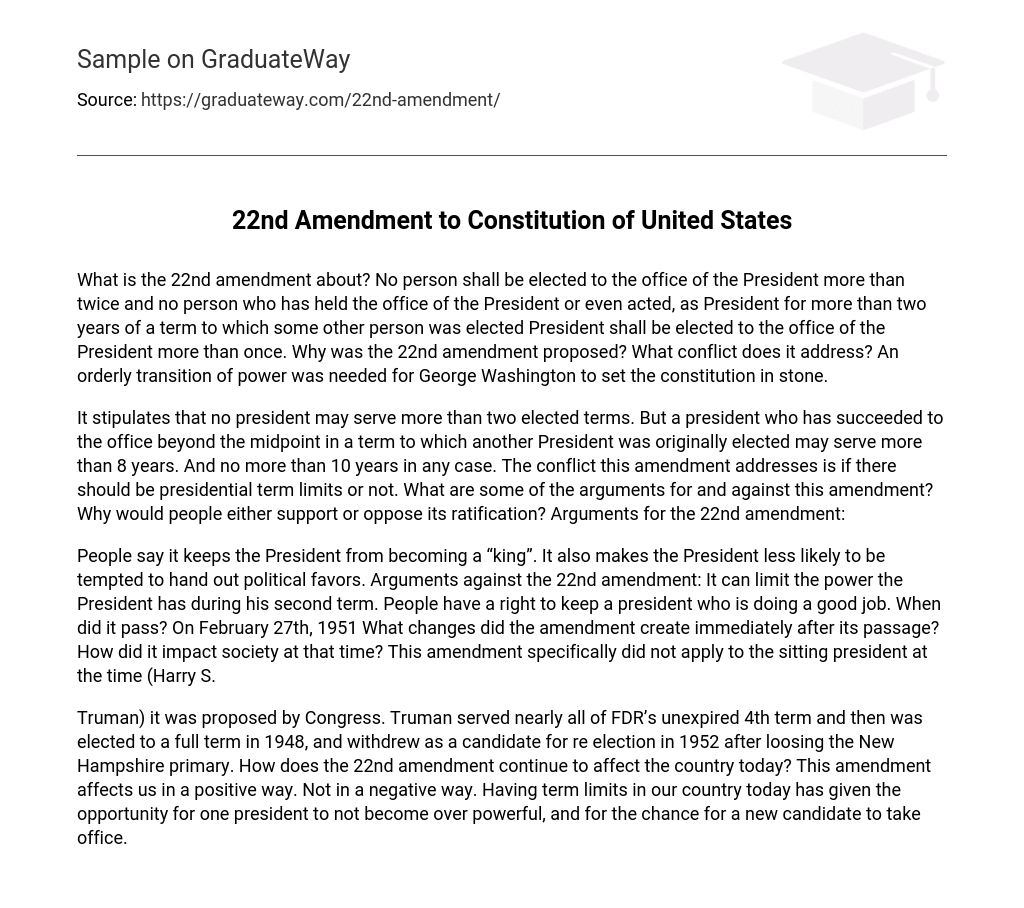What is the 22nd amendment about? No person shall be elected to the office of the President more than twice and no person who has held the office of the President or even acted, as President for more than two years of a term to which some other person was elected President shall be elected to the office of the President more than once. Why was the 22nd amendment proposed? What conflict does it address? An orderly transition of power was needed for George Washington to set the constitution in stone.
It stipulates that no president may serve more than two elected terms. But a president who has succeeded to the office beyond the midpoint in a term to which another President was originally elected may serve more than 8 years. And no more than 10 years in any case. The conflict this amendment addresses is if there should be presidential term limits or not. What are some of the arguments for and against this amendment? Why would people either support or oppose its ratification? Arguments for the 22nd amendment:
People say it keeps the President from becoming a “king”. It also makes the President less likely to be tempted to hand out political favors. Arguments against the 22nd amendment: It can limit the power the President has during his second term. People have a right to keep a president who is doing a good job. When did it pass? On February 27th, 1951 What changes did the amendment create immediately after its passage? How did it impact society at that time? This amendment specifically did not apply to the sitting president at the time (Harry S.
Truman) it was proposed by Congress. Truman served nearly all of FDR’s unexpired 4th term and then was elected to a full term in 1948, and withdrew as a candidate for re election in 1952 after loosing the New Hampshire primary. How does the 22nd amendment continue to affect the country today? This amendment affects us in a positive way. Not in a negative way. Having term limits in our country today has given the opportunity for one president to not become over powerful, and for the chance for a new candidate to take office.





